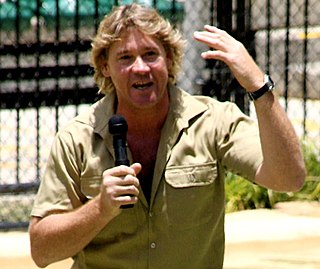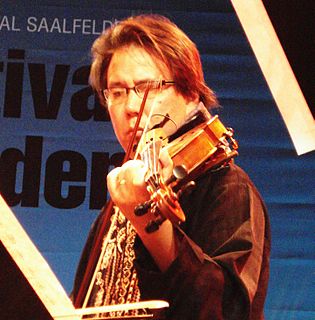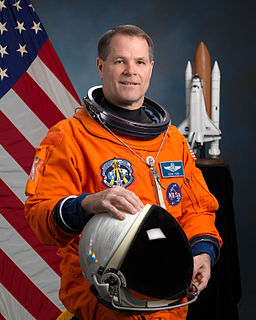A Quote by Patrick Bergin
There's no space for wildlife; the humans are crowding them out.
Related Quotes
The love I have for our wildlife is so great, it fills my world. After Black Saturday I saw a world that was black and white, void of animals and humans. What I missed most was the love and life of living with the wildlife. Each day I think of the ones gone and there is a deep hole in my heart. I did not miss the humans or the sounds they make, I missed the animals the sounds of peace and love that came from them. Such beauty and harmony with nature, only animals can be that smart.
One problem with people is that as soon as they fill a space it's them you see and not the space. Large, desolate landscapes stop being large, desolate landscapes once they have people in them. They define what the eye sees. And the human eye is almost always directed at other humans. In this way an illusion is created that humans are more important than those things on earth which are not human. It's a sick illusion.
We have indeed been out in space, but some are under the illusion that we have been off Earth. In reality humans have never been off Earth. We have always been on a piece of Earth in space. We survive only as long as we can breathe the air of Earth, drink its waters, and be nourished by its foods. There is no indication that as humans we will ever live anywhere else in the universe. Place, too, is continuously being transformed but only within its own possibilities.
Remember that even just watching animals has an impact. Intrusion into their living space can expose them to predation, keep them from feeding or other essential activities, or cause them to leave their young exposed to predation or the elements. No photo or viewing opportunity is worth harassing or stressing wildlife. In appreciating and watching them, we have a responsibility to protect and preserve the animals that share our state.
The ability of the humans to not only function in space but be very functional when they arrive at their destination, those are the kinds of things we're learning from the science. Fuel transfer technologies and all the things we can learn about the space environment are all valuable to us for pressing on out.
It's hard for us to imagine, as humans, that we'll become less powerful. But it'll be healthier for the planet and for the eco-system if that does happen. If humans are going to merge with machines, then let's get on with it. I love humans, but I also love dinosaurs - I'm pretty sure I wouldn't have wanted them to die out, either.

































